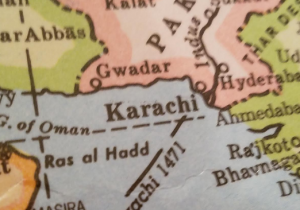NewsDesk @bactiman63
Officials at the Jinnah Postgraduate Medical Centre (JPMC) in Karachi, Pakistan report a 28-year-old individual has died from the “brain-eating amoeba”, Naegleria fowleri on Monday night, Pakistan news source, Dawn reports.

The patient had no history of swimming and that their house was being supplied with water through tankers, according to the family.
This is the sixth primary amoebic meningoencephalitis (PAM) case caused by N. fowleri reported in Karachi this year.
Deaths related to PAM have been regularly reported from Karachi since 2008. At least 150 people have died of the disease in Pakistan over the past 14 years.
Naegleria fowleri is a microscopic amoeba which is a single-celled living organism. It can cause a rare and devastating infection of the brain called primary amebic meningoencephalitis (PAM). The amoeba is commonly found in warm freshwater such as lakes, rivers, ponds and canals.
Subscribe to Outbreak News TV on YouTube
Infections can happen when contaminated water enters the body through the nose. Once the amoeba enters the nose, it travels to the brain where it causes PAM (which destroys brain tissue) and is usually fatal. Infections usually occur when it is hot for prolonged periods of time, which results in higher water temperatures and lower water levels.
Naegleria fowleri infections are rare. Most infections occur from exposure to contaminated recreational water. Cases due to the use of neti pots and the practice of ablution have been documented.
The practice of ablution is included in Yogic, Ayurvedic, and Islamic traditions. Within the Islamic faith, ritual nasal rinsing is included in a cleansing process called “wudu” or “ablution.” It is usually performed several times a day in preparation for prayer, according to the Centers for Disease Control and Prevention.
Pakistan dengue cases continue rapid rise
Pakistan reports 20th wild polio case, 17th in North Waziristan

